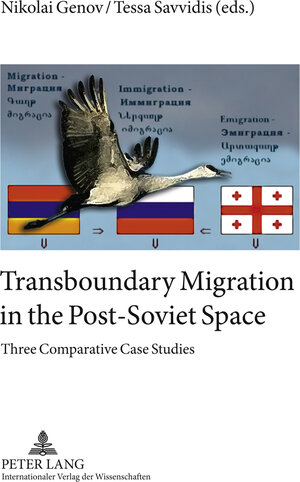
×
![Buchcover ISBN 9783653008623]()
«Das von Nikolai Genov und Tessa Savvidis herausgegebene Buch besticht besonders durch die reichhaltige empirische Arbeit. Die Studie überzeugt, weil die Funde der Interviews stets kritisch diskutiert und kontextualisiert werden. Der Leser erfährt nicht nur neuere Umfragewerte unter Migranten und Experten, sondern kann in die geschichtlichen und soziopolitischen Zusammenhänge eintauchen, vor deren Hintergrund Migrationsprozesse ihre Gestalt annehmen. Migration als holistischen, zyklischen Prozess zu analysieren, ist der zweite Verdienst dieser Studie und eine Neuheit für den postsowjetischen Raum.» (Esther Ademmer, Armenisch-Deutsche Korrespondenz (ADK))
Transboundary Migration in the Post-Soviet Space
Three Comparative Case Studies
herausgegeben von Nikolai Genov und Tessa SavvidisThe collective monograph contains the results of an empirical project conducted in Armenia and Georgia as well as in Moscow (as the favourite destination of migrants from the South Caucasus) from 2008 to 2010. The book is the first contribution to comparative research in the migration-intense post-Soviet space, and covers the complete cycle before, during and after migration. The survey focused on such relevant issues as national migration profiles including age and gender composition, «brain drain» and «brain waste», return potentials, remittances, child separation, migration perception, and personal experiences in Moscow and other destinations. As results the field studies confirm the international trend of feminization in migration and a high awareness of the ambivalent nature of migration among two cohorts of migrants from Armenia and Georgia in Moscow and six cohorts of returnees in the respective countries of origin.



